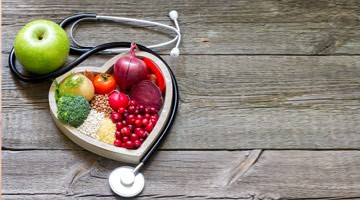Heart treatments
At Spire Norwich Hospital, we offer diagnosis and specialist treatment for a wide range of heart and circulatory conditions.
Related specialties
- Cardiac surgery
- Cardiothoracic surgery
- Cardiology
- Stroke and TIA
Why Spire?
- Fast access to a wide range of treatments
- Internationally and nationally renowned consultants
- Transparent pricing
The heart is the engine of our bodies, pumping nutrient and oxygen rich blood to every cell. But the constant demand we make on it can take its toll and lead to a number of health conditions.
We offer fast access to a wide range of procedures from tests and scans to help investigate and diagnose illness, to treatment and surgery for more complex heart-related conditions. Whether it is chest pain concerns, high cholesterol, palpitations or heart disease, our highly experienced, specialist cardiology teams are here to help keep your heart running as it should.
Your heart is in our hands and to us, there is no greater trust – making a positive difference to our patients’ lives through outstanding personalised care is at the heart of everything we do.
Select from our range of available heart treatments
Find a consultant at Spire Norwich Hospital
Chest pain clinic
Chest pain and heart problems can affect anyone at almost any age. So if you're experiencing chest pain, have had heart problems in your family, or are just thinking about the health of your heart, then we can help.
Spire Norwich Hospital has a dedicated chest pain clinic led by consultant cardiologists. A range of tests and treatments to support the diagnosis of your condition are available and our experienced staff will ensure that your visit to us is as convenient and comfortable as possible. The service includes taking a full patient history and performing a thorough examination, review of current medication and advice regarding new medications and advice regarding required diagnostic options.
Symptoms to look out for include:
- Pressure or discomfort behind the breast bone - especially if it radiates to the arm or across the shoulder blades, neck and throat.
- Pressure or discomfort with recent onset, pain occurring when walking - especially in cold or windy weather
- Pain occurring after meals or when retiring to bed at night
- Breathlessness or palpitations occurring with chest pain or discomfort
Diagnostic options may include electrocardiogram (ECG), exercise ECG testing, stress imaging scans or stress echocardiograms and assessment of coronary anatomy. During your care, your consultant will provide advise and support at every stage and will explain what tests will be performed and how long they will take so you know what to expect.
If you were referred to the chest pain clinic by your GP, a consultant cardiologist will analyse your test results and send them to your GP. If you were referred to the by a consultant to the chest pain clinic, they will discuss your results at your next appointment.
Is heart surgery and treatment for you?
Heart problems can affect anyone at almost any age. They can be caused by a natural defect, genes or an unhealthy lifestyle. For many people, heart surgery provides relief from symptoms such as breathlessness and a lack of energy – giving them the chance to enjoy a fuller life.
We provide the highest quality specialist care – from the first moment you are in touch with us through to the completion of your treatment and aftercare. Whether you use private medical insurance or you’re paying for treatment yourself, we provide expert care every step of the way.
Why choose Spire for heart surgery or treatment?
Our surgeons and cardiologists are among the best in their field. To be part of our cardiology team, our consultant cardiac surgeons, cardiologists and specialist clinical staff must be at the top of their profession.
We chose our heart surgeons on their proven expertise in complex cardiac surgery and their chosen sub-speciality, their dedication to what they do and their skill to meet our stringent requirements.
With Spire, you can choose your own expert cardiac consultant and they, along with a specialist nursing support team, will be with you every step of the way. You’ll be treated in an immaculate, modern, well-equipped hospital where care will be shaped around you. You can choose the treatment time and hospital that suits you – without having to wait.
We're proud to have been recognised for achieving excellence in patient care, staff training, nursing practice and healthcare outcomes.
Featured articles
The warning signs and symptoms of a stroke
A stroke occurs when the blood supply is cut off to an area of your brain.
Read moreThe best foods for maintaining a healthy heart
We all know that some foods are better for us than others, but do you know how your diet can affect your heart?
Read moreHeart disease: everything you need to know
According to the British Heart Foundation, heart and circulatory diseases cause more than a quarter of all deaths in the UK.
Read moreGet in touch
Important information about COVID-19 tests
COVID-19 testing or antibody tests are not available as a standalone service at Spire Norwich Hospital.




